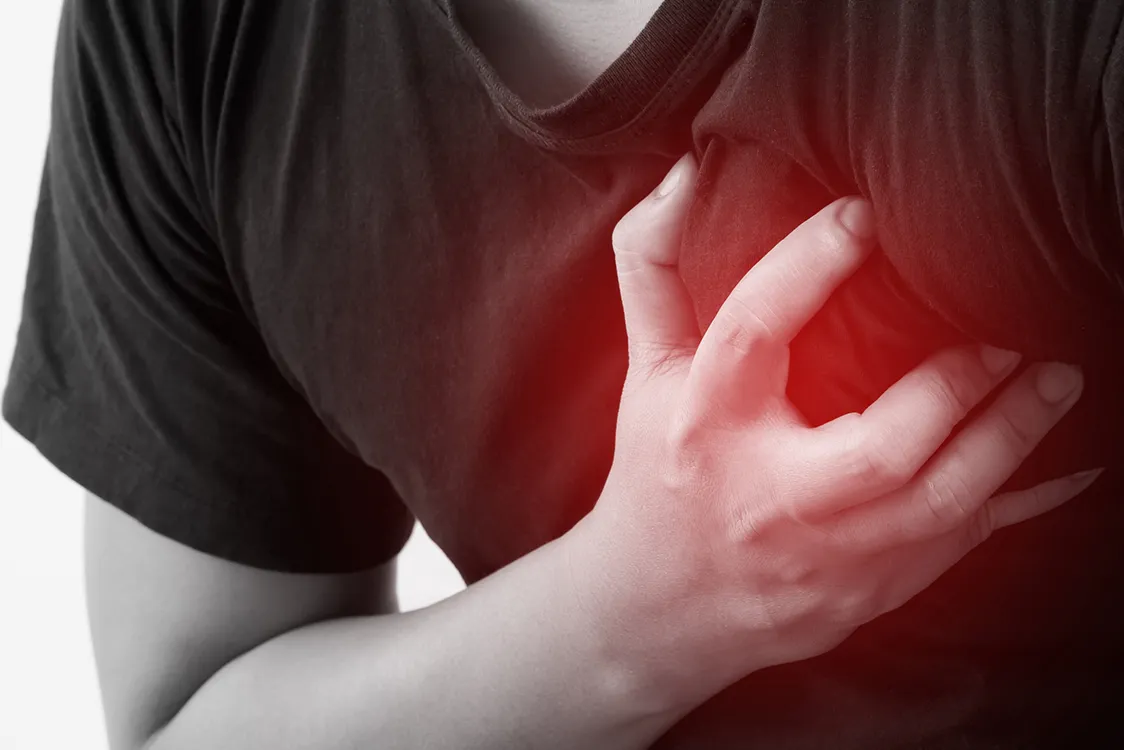Due to high incidence and prevalence of diabetes, hypertension, dyslipidemia, dietary habits, genetic risk factors, rising rates of obesity and sedentary lifestyles, smoking, and other risk factors, Indians are already more likely than Westerners to suffer a heart attack, and this risk is higher at a younger age.
Leading cardiologists reiterated that long-term COVID could be responsible in some cases and people must stop unfamiliar heavy exercise regimens as reports of heart attacks in young, fit people on the street, at weddings, on the dance floor, and in the gym grew on social media.
For the past two to three days, the hashtag #heartattack has been trending on Twitter due to several cases of sudden heart attacks in people who were otherwise fit and healthy.
“At a wedding reception, Josna Cotha, age 23, suffered a heart attack and died suddenly. The tragic event occurred while dancing,” posted a video and tweeted a user. Another Twitter user shared a video with the caption, “A young man died while walking due to a heart attack.”
Cardiologists find the sharp increase in untimely heart attack deaths to be alarming. “Even though we lack the data and evidence to say that this is a covid-induced phenomenon conclusively, there is no doubt that it has worsened since covid. In some cases, long-term COVID sequelae may be to blame,” claimed Dr. Samir Kubba, Director of Cardiology at Max Super Speciality Hospital in Vaishali.
Siddhaanth Vir Surryavanshi, a famous TV actor who appeared in shows like “Kkusum” and “Kasautii Zindagi Kay,” passed away from a heart attack last month at the age of 46. He had an attack while exercising in the gym.
Raju Srivastava, a comedian, also passed away earlier this year after collapsing in the gym while using the treadmill. Puneeth Rajkumar, a 46-year-old southern superstar, passed away in 2021 after experiencing a cardiac arrest while working in the gym.
Dr. Sanjeev Gera, Director and Head of Cardiology at Fortis Hospital Noida, claims that Covid or long Covid may leave heart vessels permanently inflamed.
The risk increases when there are risk factors for heart disease like high blood pressure, diabetes, high cholesterol, smoking, or obesity, according to Dr. Gera. This can rupture silent blockages and cause a heart attack, especially after an unfamiliar exercise like heavy weight lifting, walking on a treadmill, or running in cold weather.
Due to their dietary habits, high incidence and prevalence of diabetes, hypertension, dyslipidemia, genetic risk factors, rising rates of obesity and sedentary lifestyles, smoking, and other risk factors, Indians are already more likely than Westerners to experience heart attacks, and this risk is even higher when they are younger.
Dr. Kubba stated that “the atherosclerotic plaque can form in the coronary arteries early in life and can suddenly become unstable with unfamiliar heavy exercise, particularly if it is carried out without the proper instruction and supervision.”
Heart attacks are the primary cause of sudden death in most cases, but this is not always the case.
Arrhythmia can also be the cause (abnormality in heart rhythm ). The latter may be brought on by genetic conditions, silent cardiomyopathy, and myocarditis (heart muscle infection).
“We advise a proper screening, especially of the high-risk population (diabetics, hypertensives, smokers, people with a strong family history of heart disease, people with high cholesterol, sedentary and obese people, etc.),” said Dr. Kubba.
A thorough clinical examination, an ECG, and possibly an echocardiogram are all parts of the screening process.
Additionally, the exercise program must be under supervision. He suggested carrying 300–325 mg of chewable aspirin if a heart attack was suspected. A new study found that the risk of death from a heart attack or failure following Covid-19 infection is very high within the first 30 days of infection but remains elevated for some time afterward.
Covid has been associated with an increased risk of poor cardiovascular health and death, particularly in those whose infection is severe enough to require hospital admission, according to a significant UK Biobank study that was published in the journal Heart.



